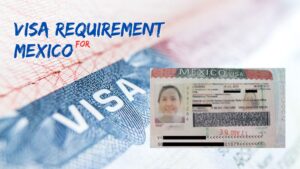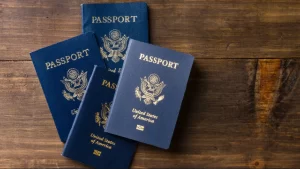For U.S. citizens planning to visit India, understanding the visa application process is essential. India offers various types of visas, each with its own set of requirements, fees, and processing timelines. Traveling for tourism, business, or medical reasons, securing the right visa can ensure a smooth journey. All the necessary details to help U.S. passport holders navigate the application process, ensuring they meet the necessary criteria and are prepared for the processing time.
Types of India Visas for US Citizens
US citizens can apply for various types of Indian visas, including e-Visas for tourism, business, or medical purposes, as well as regular paper visas for longer stays and specific purposes like employment or research. e-Visas offer a simplified online application process for short-term stays, while regular visas cater to longer or more specialized needs.
- Tourist Visa (T Visa)
This is the most common visa for those visiting India for tourism, leisure, or short-term visits. The Tourist Visa for U.S. citizens typically allows stays from 30 days to 6 months, depending on the country of origin and specific application guidelines.
- Business Visa (B Visa)
Business Visa is granted to U.S. citizens traveling to India for business purposes, including attending meetings, conferences, or exploring investment opportunities. The visa duration can range from 6 months to 5 years, depending on the nature of the business trip.
- Medical Visa (M Visa)
The Medical Visa is for U.S. citizens traveling to India for medical treatment or procedures. This visa is typically issued for up to 6 months, with provisions for extensions in cases of prolonged medical treatment.
- E-Visa
An e-Visa is available for U.S. citizens who are traveling to India for tourism, business, or medical purposes. The application is done online, and the visa can be granted for a stay of up to 60 days. E-Visas are convenient and processed quickly, but they come with some limitations, such as only allowing entry via certain airports.
- Transit Visa (T Visa)
Transit Visa is issued for U.S. citizens who are passing through India en route to another destination. The validity is short-term, usually 15 days, and it is ideal for travelers with layovers in India.
- Student Visa (S Visa)
The Student Visa is granted to U.S. citizens who are planning to study at Indian educational institutions. The visa duration typically corresponds to the length of the academic program and can be extended if necessary.
- Employment Visa (E Visa)
U.S. citizens who have secured a job offer from an Indian company will need an Employment Visa. This visa allows for long-term stays, typically ranging from 1 to 5 years.
India Visa Requirements for US Citizens
Traveling to India offers US citizens a chance to experience a vibrant culture, rich history, and diverse landscapes. Before planning a trip, it’s essential to understand the visa requirements in order to ensure a smooth and hassle-free journey. The Indian government has streamlined the visa process for US passport holders, offering several options including e-Visas for tourism, business, and medical visits. Familiarizing yourself with the necessary documents, application procedures, and validity periods will help avoid any last-minute issues and make your travel experience more enjoyable.
To apply for an India visa, U.S. citizens must meet specific requirements. These requirements vary depending on the visa type.
1. General Eligibility Criteria
- Valid Passport: Your passport must be valid for at least six months from the date of your arrival in India and contain at least two blank pages.
- Application Form: You must complete the visa application form available online through the official Indian Government website or in person at the nearest Indian Consulate.
- Photographs: Recent passport-sized color photographs meeting Indian visa guidelines.
- Travel Itinerary: A copy of your travel itinerary or flight bookings.
- Financial Proof: Proof of sufficient funds to support your stay in India (bank statements, affidavits, etc.).
2. Specific Documents Based on Visa Type
- Tourist Visa: Proof of travel (flight tickets), hotel reservations, and sufficient funds.
- Business Visa: An invitation letter from an Indian company and details of the business trip.
- Medical Visa: A letter from a medical institution in India confirming the required treatment.
- Student Visa: Proof of admission from an Indian educational institution, including tuition fee payment receipts.
- Employment Visa: A valid offer letter from an Indian employer and proof of employment.
India Visa Fees for US Citizens
The visa fees for U.S. citizens vary based on the type of visa being applied for. Below is an approximate fee structure for different types of India visas.
Tourist Visa Fees
Tourist visa fees vary depending on the destination country, visa type, and duration of stay. Understanding these fees is crucial for planning your trip and ensuring a smooth visa application process. Provides a quick overview of tourist visa costs and factors that influence the pricing.
Tourist visas are ideal for leisure travelers visiting India for sightseeing, family visits, or short trips.
- Short-term Tourist Visa (up to 6 months):
Fees typically range from $10 to $100, depending on the duration and the processing method. - E-Tourist Visa:
The e-Visa is a convenient online option.- Cost: $10 to $80, based on the visa duration and type.
- Valid for single or multiple entries and is generally more affordable than regular visas.
Business Visa Fees
Business visa fees are essential to consider when planning international travel for work-related purposes. These fees vary based on factors such as the country, visa type, duration, and number of entries allowed. Clear understanding of these fees ensures you’re prepared for the visa application process, helping you avoid unexpected costs and delays.
For U.S. citizens traveling to India for work meetings, trade events, or business-related activities:
- Business Visa Fees:
Range between $100 and $300 depending on the validity period.- Longer-term business visas (up to 10 years) tend to be on the higher end of the fee scale.
Medical Visa Fees
Medical visa fees depend on the country, visa type, and duration of stay. These fees are generally affordable, but they can vary based on the destination and specific requirements for medical treatment. Knowing the medical visa fees in advance helps in budgeting for the entire process, ensuring a smooth application and timely approval.
This visa is for those seeking medical treatment in recognized hospitals or treatment centers in India.
- Medical Visa Fees:
Fees generally fall between $50 and $150 for short-term medical stays.
Student Visa Fees
Students enrolling in Indian educational institutions need a student visa.
- Student Visa Fees:
Range from $50 to $200, based on the duration and type of course or program enrolled in.
Employment Visa Fees
U.S. citizens working with Indian companies or on assignment in India require an employment visa.
- Employment Visa Fees:
Typically between $100 and $200, depending on the length of employment and job type.
E-Visa Fees (All Categories)
India offers e-Visas for several categories including tourist, business, and medical.
- E-Visa Fees:
Range from $10 to $80, based on visa type and validity.- E-Visas are valid for 30 days to 1 year depending on the category, and they offer an easier online application process.
Processing Time for India Visa
When planning a trip to India, understanding the visa processing time is crucial to avoid last-minute stress. It takes to process an India visa for U.S. citizens depends on several factors, including the type of visa, the processing method (regular or e-visa), and the volume of applications at the time of submission.
Standard Processing Time
Tourist Visa (Regular)
- Processing Time: Usually 7 to 10 business days.
- This applies to the traditional tourist visa obtained through an Indian embassy or consulate.
Business Visa
- Processing Time: Typically 7 to 15 business days.
- The duration may vary depending on the location and workload of the Indian embassy or consulate handling your application.
E-Visa (Tourist, Business, Medical)
- Processing Time: Faster and more convenient.
- Usually completed within 3 to 5 business days.
- Recommended for short trips as it’s easier to apply online and track.
Medical Visa
- Processing Time: Similar to a tourist visa.
- Usually processed in 7 to 10 business days.
Student Visa
- Processing Time: Between 7 to 15 business days.
- May vary depending on the academic institution and the consulate.
How to Apply for an India Visa for us citizens?
Applying for an India visa can be done online or in person, depending on the visa type and applicant preferences.
Online Application (E-Visa)
- Visit the official Indian Government e-Visa website.
- Fill out the online application form.
- Upload the required documents, including a passport-size photo.
- Pay the visa fee online via credit or debit card.
- Receive an e-Visa via email within 3-5 business days.
In-Person Application (for Regular Visa Types)
- Complete the visa application form online.
- Gather the necessary documents.
- Submit your documents at the Indian Consulate or visa application center.
- Pay the visa fee (online or in person).
- Attend the visa interview, if required, and await processing.
India E-Visa vs. Regular Visa for US Citizens
India is a land of vibrant cultures, historical landmarks, and spiritual experiences. Planning a yoga retreat in Rishikesh, exploring the forts of Rajasthan, or attending a business meeting in Mumbai, getting the right visa is your first step. Two major visa types are available for most travelers: the India E-Visa and the Regular Visa. While both grant entry to India, they differ in application process, cost, duration, and purpose.
What Is an India E-Visa?
The India E-Visa is an electronic travel authorization for foreign nationals. It can be applied for entirely online without visiting an Indian embassy or consulate. It was introduced to simplify the visa process and promote tourism and business.
Key Features of E-Visa:
- Eligibility: Available to citizens of over 160 countries
- Application Method: Online only
- Processing Time: 3–5 business days (can be faster)
Validity:
- Tourist E-Visa: Up to 1 year (multiple entries)
- Business E-Visa: Up to 1 year
- Medical E-Visa: Up to 60 days
- Entry Ports: Available only at designated airports and seaports
- Extension/Renewal: Not extendable or convertible
What Is a Regular Visa?
The Regular Visa, also known as the sticker visa or paper visa, is issued by Indian embassies and consulates. The process is more traditional and requires physical documentation and sometimes an in-person interview.
Key Features of Regular Visa:
- Application Method: Apply through embassy or visa centers
- Processing Time: Varies (can take several weeks)
- Validity: Typically 6 months to 10 years depending on type and nationality
- Entry Ports: Valid at all Indian border checkpoints
- Extension/Renewal: Possible in certain cases
- Eligibility: Open to all nationalities
E-Visa vs. Regular Visa
| Feature | E-Visa | Regular Visa |
|---|---|---|
| Application Process | Fully online | In-person or by post |
| Processing Time | 3–5 days | 1–4 weeks |
| Cost | Lower (varies by country/type) | Higher due to processing & embassy fees |
| Entry Points | Limited airports/seaports | All air, sea, and land borders |
| Purpose | Tourism, Business, Medical | Tourism, Business, Medical, Employment, Studies, etc. |
| Extension Possible | No | Yes, under some conditions |
| Duration | Short-term stays | Long-term options available |
When to Choose an E-Visa?
If you’re planning a short trip to India and want a quick, convenient, and paperless visa process, the E-Visa is the perfect choice. Traveling for tourism, business, or medical reasons, the E-Visa saves time and effort by allowing you to apply online – no embassy visits required. It’s ideal for travelers looking for fast approval, simple procedures, and short-term stays. When choosing an E-Visa is the smartest move.
Choose the India E-Visa if:
- Eligible under the e-visa program (check India’s official e-visa portal).
- Planning a short visit (tourism, medical, or business).
- You want a quick, hassle-free application process.
- Entering through approved airports/seaports.
When to Choose a Regular Visa?
While the India E-Visa offers speed and convenience, it’s not always the right fit for every traveler. If your journey involves extended stays, employment, study, or entry through land borders, the Regular Visa is your go-to option. It’s designed for those who need greater flexibility, longer durations, or have specific purposes that aren’t covered under the e-visa scheme. Here’s when opting for a Regular Visa makes more sense.
Choose the Regular Visa if:
- Visa for long-term stays (employment, studies, or extended tourism).
- Plan to enter via land borders (e.g., from Nepal).
- Option to extend or modify your visa in India.
- Country is not eligible for the e-visa.
Visa Extension and Renewal Process in India for U.S. Citizens
While traveling or residing temporarily in India, U.S. citizens may encounter situations that require them to stay longer than initially planned. In such cases, understanding the visa extension and renewal process becomes important. The Indian government has set specific procedures and rules for visa holders, and it’s important to follow these guidelines to avoid legal issues.
How to Extend Your Visa?
U.S. citizens currently in India who wish to extend their stay can apply for a visa extension through the Foreigners Regional Registration Office (FRRO) or via the Citybit trusted Website The process is streamlined through the online platform, eliminating the need to visit FRRO offices in person for most cases.
Eligibility for Visa Extension
Visa extensions are generally considered under exceptional circumstances such as:
- Medical emergencies (treatment for serious illness or injury)
- Prolonged business assignments
- Other humanitarian reasons
It is important to note that visa extensions are not guaranteed and are approved at the discretion of Indian immigration authorities. Applications must be submitted well before the expiration of the current visa, and supporting documentation must be provided to justify the request.
Documents Required for Visa Extension:
- Copy of current visa and passport
- Proof of residence in India
- Supporting documents for the extension reason (e.g., medical reports, business letters)
- Passport-size photographs
- Payment of applicable fees
Visa Renewal: What You Need to Know
Unlike extensions, visa renewal is not typically allowed from within India. If a U.S. citizen’s visa expires, they must leave the country and apply for a new visa from their home country or another foreign location through the Indian Embassy or Consulate.
Key Points about Visa Renewal:
- No in-country renewal: India does not permit visa renewals from within its borders.
- Exit and reapply: You must exit India and apply for a fresh visa.
- Overstaying consequences: Overstaying your visa, even unintentionally, may result in fines, deportation, or future visa denials.
Tips for a Smooth Process
- Apply early: Don’t wait until the last minute to apply for an extension.
- Keep documents handy: Ensure you have all required paperwork ready and scanned for upload.
- Track your application: Use the FRRO portal to check the status of your extension request.
- Consult legal help: If your situation is complex, consider consulting a legal expert in Indian immigration law.
Common Issues and Troubleshooting in Visa Applications
Visa application processes can sometimes face challenges. Here are some common issues and tips on how to resolve them:
Visa Rejection
- Reasons for Rejection:
- Failure to meet eligibility criteria
- Incorrect or incomplete documents
- Missing information or incorrect details
How to Fix?
- Thoroughly review and verify all required documents before submitting.
- Ensure that all the information is accurate and complete.
- Double-check eligibility criteria and provide additional supporting documents if needed.
Causes of Delays:
- High volume of applications: Increased demand for services can lead to longer processing times.
- Public holidays or weekends: Processing times may be affected during these periods due to office closures.
- Missing or incomplete documents: Submitting incomplete applications can result in delays as additional documentation is requested.
How to Fix:
- Apply well in advance: To avoid last-minute issues, submit your application well before your planned travel date.
- Consider expedited services: If you need faster processing, look into expedited services that can speed up the process.
- Ensure complete documentation: Double-check that all required documents are submitted with your application to prevent delays caused by missing paperwork.
Securing an India visa for U.S. citizens is an essential step in planning a trip to India. Traveling for tourism, business, medical, or educational purposes, understanding the visa requirements, fees, and processing time can ensure a smooth application process. Be sure to choose the right type of visa, gather all necessary documents, and apply ahead of time to avoid delays.
FAQs
What are the requirements for a US citizen to apply for an India visa?
U.S. citizens need a valid passport, completed application form, recent photographs, proof of travel, and supporting documents depending on the visa type (tourism, business, medical, etc.).
How long does it take to process an India visa for US citizens?
Standard processing time is typically 7-10 business days. For e-Visas, it takes about 3-5 business days.
What is the cost of an India visa for US citizens?
Visa fees range from $10 to $100 for e-Visas and $100 to $300 for business or tourist visas, depending on the duration and type.
Can US citizens apply for an India e-Visa?
Yes, U.S. citizens can apply for an e-Visa for tourism, business, or medical purposes. It’s quick and valid for up to 60 days.
What documents are required for an India tourist visa for US citizens?
Required documents include a valid passport, completed application form, recent photographs, travel itinerary, and proof of financial support.
How do I apply for an India visa online?
Visit the official Indian Government e-Visa website, fill out the online form, upload documents, and pay the visa fee.
Can I extend my India visa while in India?
Visa extensions are generally not allowed unless it’s for medical reasons. Extensions can be applied at the FRRO (Foreigners Regional Registration Office).
Is it possible to get an India visa on arrival for US citizens?
India does not offer a visa on arrival for U.S. citizens. However, you can apply for an e-Visa before traveling.
Can US citizens apply for an India business visa online?
Yes, U.S. citizens can apply for a business visa online through the Indian government’s official portal.
How many times can I enter India on an e-Visa?
An e-Visa allows a single entry, with a stay of up to 60 days. Multiple entries require a regular visa.
What should I do if my India visa application is denied?
Review the reason for denial, correct any errors, and reapply with the proper documentation. In some cases, appeal may be possible.
What is the validity of a US citizen’s India visa?
The validity depends on the visa type: tourist visas are typically valid for 6 months, while e-Visas are valid for 60 days.
Can I apply for an India visa if my passport is expiring soon?
Your passport must be valid for at least six months from the date of your arrival in India, so ensure your passport meets this requirement before applying.
What is the fastest way to get an India visa for US citizens?
The fastest option is to apply for an e-Visa, which typically takes 3-5 business days.
Can I apply for an India visa for my family members?
Yes, U.S. citizens can apply for India visas for family members, provided each applicant submits the required documentation.









